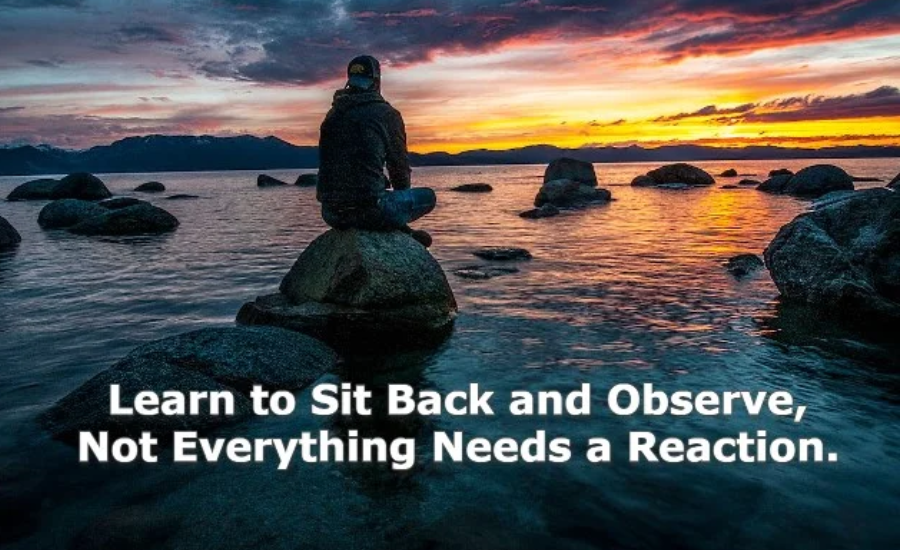
Learn to Sit Back and Observe: Not Everything Needs Your Immediate Attention – tymoff
In today’s fast-paced world, learn to sit back and observe. not everything need – tymoff is a crucial skill that can transform our lives. In the following spots and situations, we often can benefit by simply stepping back – and thus avoid stress and make better choices.
Understanding the Power of Observation
Observation is one of the greatest tools one can learn and turn one’s life around with. It is said that what you see in others is also in yourself, and sometimes all it takes to understand is to look and not do. This practice can help us in numerous ways, including:
- Improved Decision-Making: Often, when going headlong into a decision or action without having a clear understanding of conditions, we get it wrong. By learn to sit back and observe. not everything need – tymoff, we can gather essential information and consider all the potential outcomes before making a choice.
- Enhanced Problem-Solving Skills: It is a well-known fact that observation enables one to get to the heart of a problem, not the branch. This makes it easy for us to come up with a measure that will be efficient and sustainable in the long run.
- Increased Emotional Intelligence: Focusing on one’s feelings and other people’s feelings also creates more empathic thinking. On the same note, this can make for better interpersonal relations as well as enable people to widen what they know as effective ways of communication.
- Reduced Stress and Anxiety: Taking time to learn to sit back and observe. not everything is needed – tymoff can help us slow down and appreciate the present moment. It may also minimize stress and anxiety levels and, therefore, help keep people healthy.
- Boosted Creativity: Fieldwork can generate new ideas and may promote people’s innovative thinking. It takes being in tune with a culture to see potential within a realm that would have otherwise gone unnoticed elsewhere.
Practical Tips for Cultivating Observation
- Mindful Meditation: People who practice meditation, can achieve what is referred to as mind-full presence or mindfulness of the present moment. The mere act of paying attention to your breathing and bodily feelings helps work your mind to refrain from judging.
- Journaling: Journaling may help track your ideas, emotions, and any event from your daily life. When you write down your findings you will get additional notions and patterns to further investigate.
- Nature Walks: Observation could also be easily done while in parks or any other natural environment. Observe what is going on around you Be aware of what is happening around you, regarding the natural world, if you can.
- People-Watching: We also need to track how individuals within societies or the populace interact with each other, especially in public domains. They include eye contact, gestures, posture, nonverbal communication, and other spoken or written words: paying attention to their actions and words and those of other people can assist you in building up more social competence and appreciation of human conduct.
- Digital Detox: Make personal time away from machinery to avoid the easiest access to information. This will provide ample time in the time series to reflect on their thoughts and feelings.
Overcoming Obstacles to Observation
It can be challenging to learn to sit back and observe. not everything need – tymoff in our fast-paced world. Here are some common obstacles and tips for overcoming them:
- Impatience: The next time you react to someone’s action before understanding why they are doing it remember that patience is golden.
- Fear of Missing Out (FOMO): Do not be bothered about what you stand to lose, but the gains that are attached to stepping out for some time.
- Perfectionism: This means that when observing do not try and aim at being perfect. Just aim to be receptive to knowledge; do not set goals on knowledge acquisition.
- Distractions: Make sure you choose a silent and calm environment in which you will be able to observe alone. Silence your telephone and have a seat somewhere where you will not be disturbed.
The Benefits of Observation in Everyday Life
Observation can be applied to various aspects of your life, including:
- Personal Relationships: In this way, the presentation provides important information about the ways you can identify and improve your partner’s behavior and communication skills to foster a strong relationship and solve conflicts.
- Career: This involves recognizing the abilities and performance shortcomings of your co-workers. So that close working relationships and career enhancement can be created and supported.
- Health and Wellness: This allows you to detect any health problems before they advance due to early signs that your body exhibits.
- Creativity: Spend some time only watching and listening to the things going on around you and art will be the natural result.
- Problem-Solving: When it comes to perceiving a problem from the right perspective, then solution-oriented approaches will be achieved.
- Decision-Making: Especially if you take a breather and observe the situation to make a reasonable decision out of it.
A Step-by-Step Guide to Cultivating Observation
- Start Small: It is recommended to start with observation in the minor, mundane scenarios. For instance, pay attention to how people engage themselves at a coffee shop or the particulars of a sunset.
- Set Aside Time: Choose a time in the day when your target child is most likely to engage in the desired behavior or at particular hours of the day.
- Practice Mindfulness: Introducing Mindfulness into your practice: The goal of mindfulness is to improve your focus and observation skills.
- Ask Questions: Develop curiosity by questioning that which is around you. This will make you focused on observing more.
- Reflect on Your Observations: Learn how to explicitly take time and think about what you have seen. What insights did you gain? What can be done to apply such ideas in everyday life?
FAQs: The Art of Observation
Q: What does it mean to observe, and why is observation crucial?
A: Observation is the clinical process of watching or focusing most of the attention on an object or a person. It is especially about deliberately paying more attention to scenarios, patterns, and people’s behaviors. Indeed knowledge is significant because it enables people to comprehensively understand other people and our environment.
Q: What are the tips for enhancing observation skills?
A: Here are a few tips:
- Practice mindfulness: Watch your thoughts, emotions, and physical experiences.
- Spend time in nature: In nature, there are numerous possibilities to observe.
- People-watch: See how people communicate and how they use their hands when they are speaking.
- Journaling: The only task to do as a writer is to document your observations to reflect on them.
- Ask questions: Interest can result in scrutiny.
Q: What are the benefits of observation?
A: Observation can lead to:
- Improved decision-making
- Higher level of cognitive abilities in problem-solving.
- Increased creativity
- Stronger relationships
- Reduced stress and anxiety
Q: Besides, how can I minimize the level of distractions and give more attention to observation?
A: To fight distractions, it is possible to try the following:
- Create a quiet space: Identify a quiet place where you can work without any other external influences – distractions.
- Turn off notifications: Avoid as much as possible distraction from the phone or the computer.
- Practice mindfulness techniques: These can assist you in rousing your attention.
- Start small: Start with observing for a short period and then move up with the observation times.
Q: Can observation help me in my daily life?
A: Absolutely! Observation can be applied to various aspects of your life, such as:
- Work: Many times we may not take notice of what next to us our colleague is capable of doing or not capable of doing and this causes problems in groups.
- Relationships: In the same respect, watching your partner’s actions can help improve the closeness in your relationship.
- Health: This is especially important if you want to be healthy. Because you have to pay attention to signals from your body.
- Creativity: By observing the surroundings more ideas can be developed.
Conclusion
By learn to sit back and observe. not everything need – tymoff, we can unlock our full potential and live more fulfilling lives. It is an incredibly basic intervention that has the potential to change our outlook, our methods of arriving at decisions, and much more for the better. Therefore, the next time that you get derailed or stressed, do not forget to take time, relax, and watch!



Average Rating